Michael Myers dawned upon cinema screens in 1978's Halloween. The independent horror film established a career for the director, John Carpenter. With the rise of the slasher genre in the 1980s, the character of Michael Myers proceeded to become a pop culture phenomenon.
The blank-faced psychopath returned to cinema screens in 1981 with the release of Halloween II. The sequel showcased Myers' scorching demise. However, his undying popularity brought upon his resurrection after the polarizing response to Halloween III: Season of the Witch, in which Myers was notably absent. 1988 brought upon Halloween 4: The Return of Michael Myers, an underrated and overlooked sequel.
10 Atmosphere
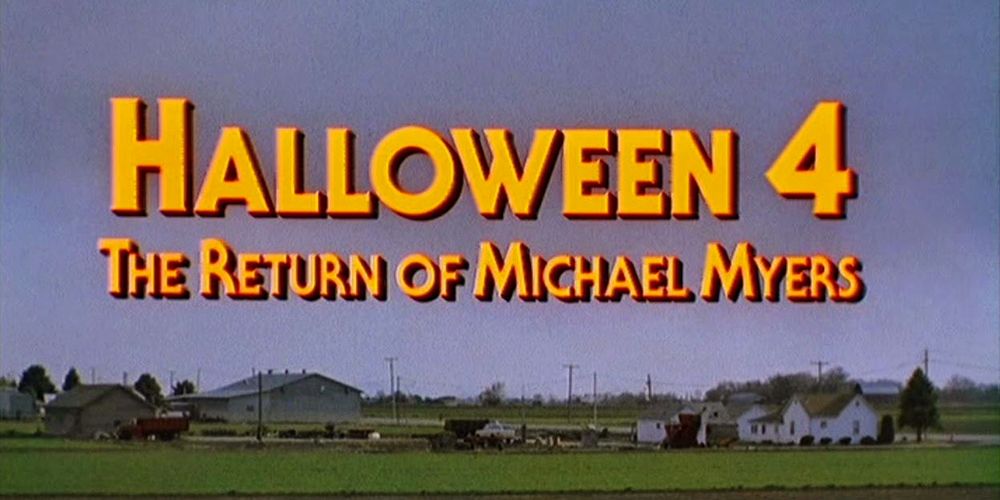
The first Halloween movie established a very particular time and place for the series. Halloween, the holiday, hovered over every film like the specter that was Michael Myers. This notion was forever present within Halloween 4: The Return of Michael Myers. Halloween seemed to ooze, dampen, and engulf this sequel.
There was no better example of this than the opening credits. Halloween decorations littered upon a barren farm accompanied by nothing but ambient sound instituted a foreboding mood. Warm orange credits contrasted the farm's gloom-filled navy sky. Myers' presence was felt even when not present. This sequel had a realistic atmosphere that adopted the holiday much more than any of the other sequels.
9 Rachel Carruthers
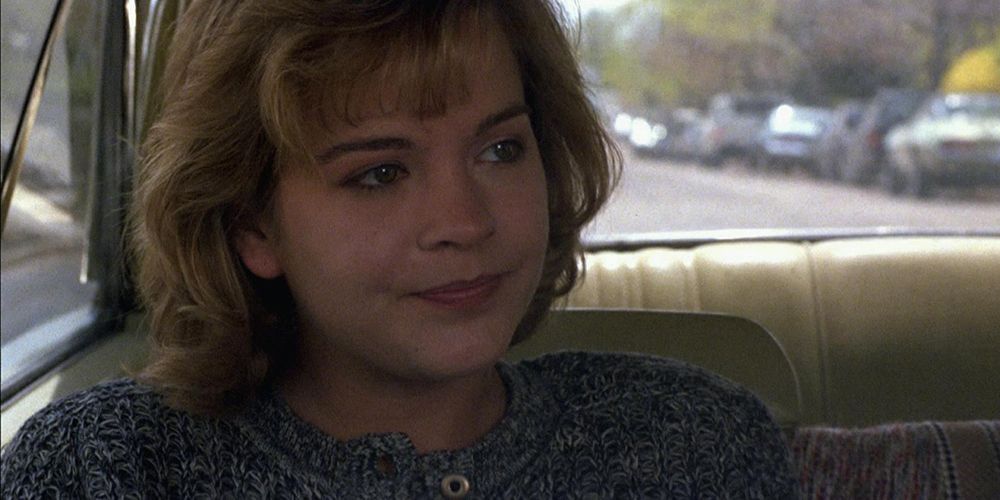
Halloween 4: The Return of Michael Myers introduced something old made new. The "final girl" trope within the slasher genre was one that had become exhausted by 1988. This sequel did something different with the character of Rachel Carruthers, played by Ellie Cornell.
Rachel was much more grounded in life and reality rather than circumstance. Rachel had prior issues even before Myers' newfound rampage. Relationship plight, familial obligations, insecurities, and guilt were a handful of issues that loomed over Rachel's mind. Audiences felt that she was a real person rather than a prop, cliché, or cannon fodder to pad the body count.
8 Tenth Anniversary
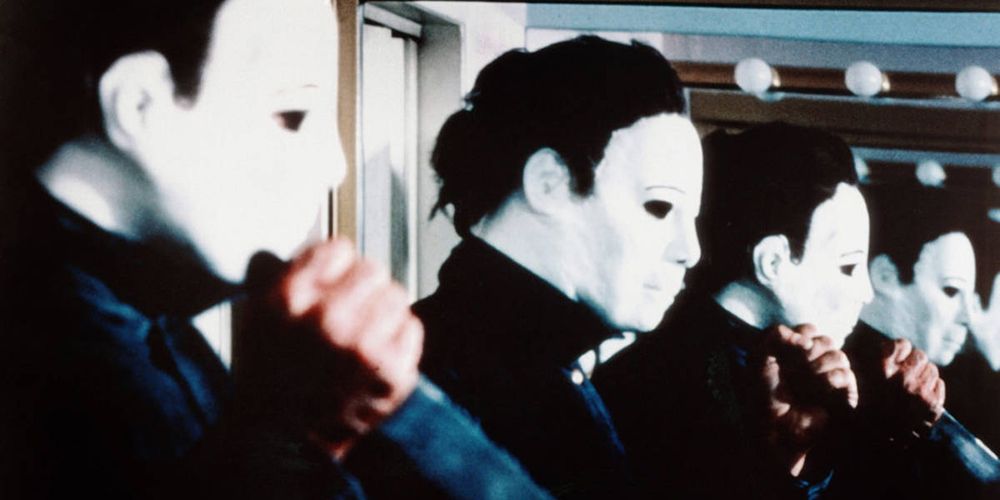
The decade between 1978 to 1988 brought upon immense changes in the context of time. Filmmaking in the 1970s had much more traditional influences from prior decades. The 1980s embraced inspirations in filmmaking that drew from post-modernism that was the 1970s.
For clarity, a musical analogy of this statement would be as follows: Halloween (1978) was Black Sabbath, influenced by blues and horror, while Halloween 4: The Return of Michael Myers was Metallica, influenced by Black Sabbath. Michael Myers managed to adapt to this change in era. The character and franchise did not get stuck in time. It morphed with the times. That benefited its tenth anniversary.
7 The Legend Of Michael Myers
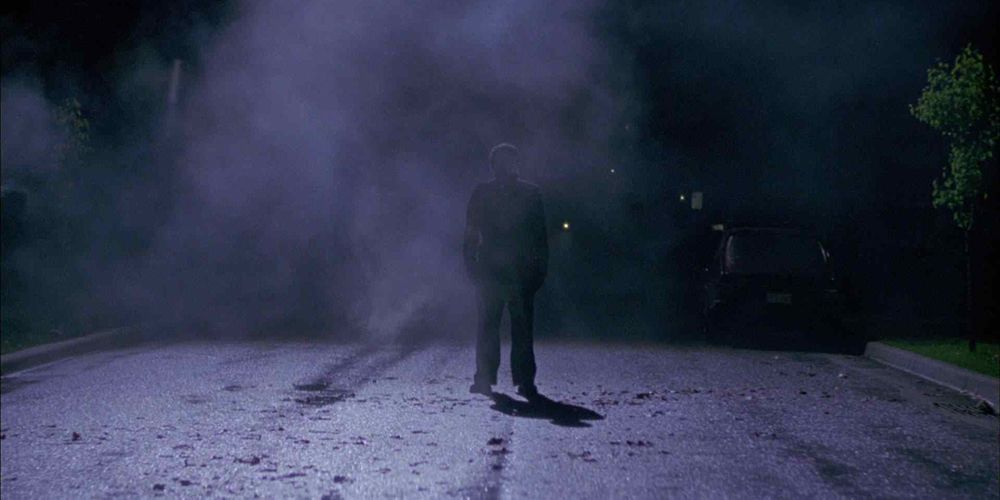
With every passing Halloween, Myers' legend swelled and loomed over Haddonfield with much more ferocity. Many occurrences happened within that decade of silence. Laurie Strode passed away, which left her daughter, Jamie, in foster care with the Carruthers family. Michael Myers was kept alive at Ridgemont Federal Sanitarium. Michael Myers' former psychiatrist, Dr. Samuel Loomis, survived the blaze from Halloween II and dreaded his patient's return.
Citizens of Haddonfield were now familiar with who Michael Myers was, what he was capable of, and how to be prepared for him. The decade of absence inadvertently became a luxury for Michael Myers' legend.
6 Haddonfield Community
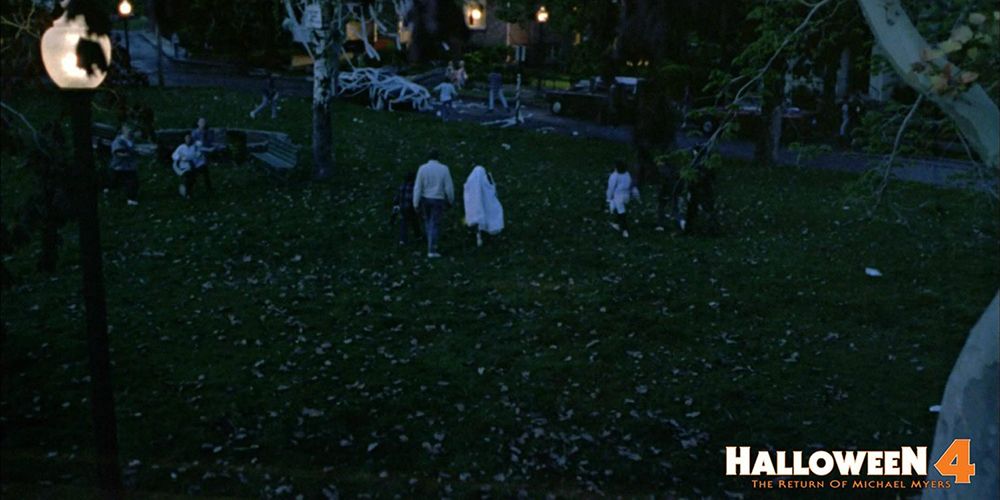
The world-building within Halloween 4: The Return of Michael Myers was the backbone of the sequel. Haddonfield, Illinois felt like a true, prospering community rocked by a decade-old massacre. This sequel showcased many establishments speckled throughout the town. Deputies shuffled around the sheriff's department, children scampered about elementary school hallways in their Halloween costumes, and bar patrons drank and smoked the Halloween night away amongst friends. Utility workers worked on electrical repairs. Citizens did last-minute Halloween shopping at discount stores. This sequel took its time to pave a foundation of a setting for its characters to inhabit before Michael Myers' barrage of violence.
5 Monster's Motivation
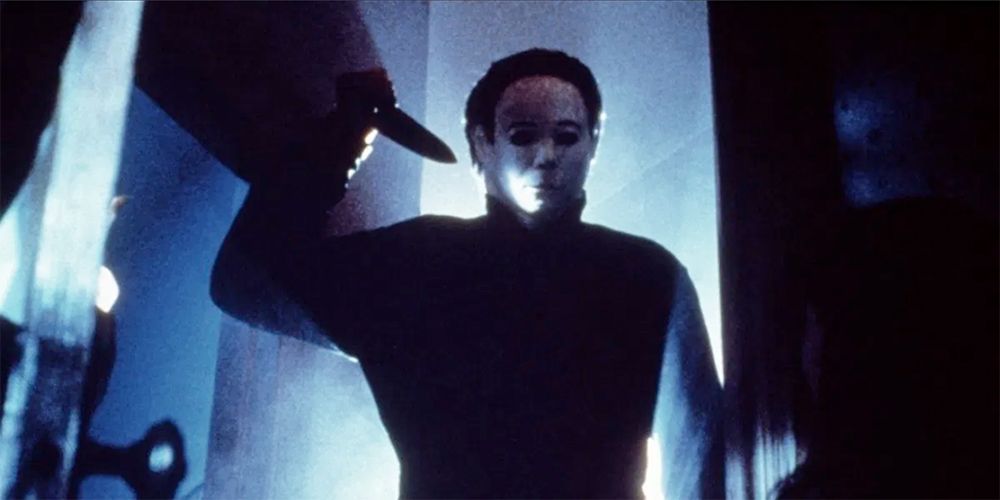
If Halloween (1978) had been a stand-alone film, Michael Myers' directionless and unprovoked slaughter could be justified as just a random act of insanity. That alone was what made the original film frightening.
Halloween II established the ever polarizing plot that Laurie Strode was Michael Myers' long-lost sister. Due to John Carpenter's drunken stupor and writer's block, he unwittingly gave Michael Myers motivation, and this motivation was to kill his bloodline. That same motivation drove the subsequent Halloween sequels that featured Michael Myers. With Laurie Strode now dead, Halloween 4: The Return of Michael Myers gave Michael a new target, Jamie Lloyd, his seven-year-old niece.
4 Sisters In Arms
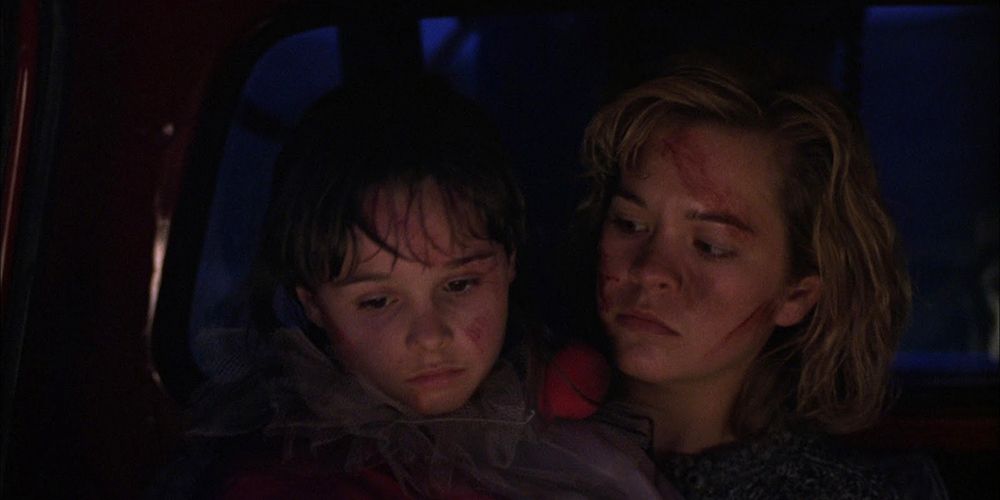
The relationship between Jamie Lloyd and Rachel Carruthers was truly the heart of this sequel. At the inception of the film, the innocence and vulnerability of Jamie contrasted with the stern and nonchalant demeanor of Rachel. They were foster sisters. The thorn-like loneliness rooted within Jamie was scraped away by Rachel's steadily unlatching love.
Rachel soon recognized her selfishness was steamrolling over Jamie. Throughout the film, their relationship blossomed as Rachel acted upon bringing Jamie joy that Halloween. Once Michael Myers arrived, Rachel took charge and fought back against Jamie's psychotic uncle on rooftops, schoolyards, and streets. She pulled out all the stops to save her sister.
3 Dr. Samuel Loomis
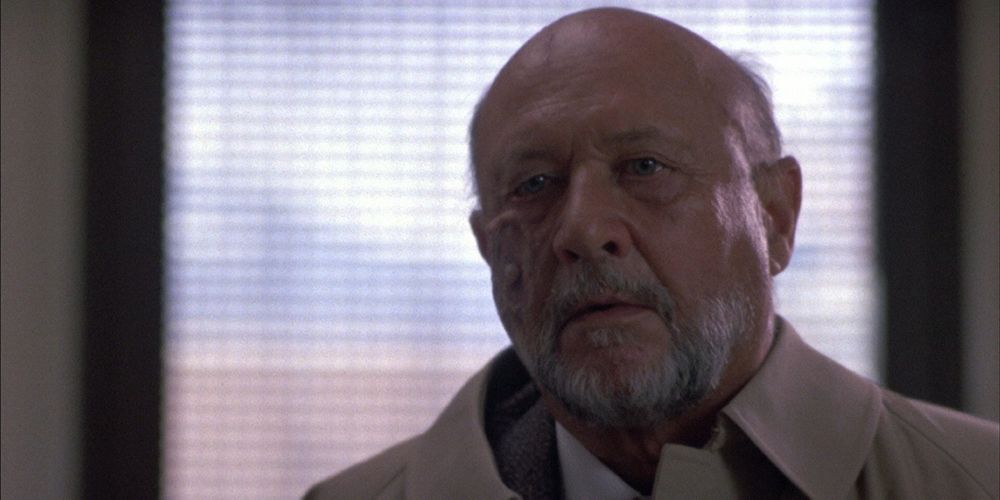
Dr. Samuel Loomis, played by Donald Pleasence, shadowed Michael Myers throughout the entire Halloween franchise. Within this fourth installment, Loomis brought sympathy and tragedy because of his elderly age. Pleasence played the character like a father who's failed his child. His attempts to reach Michael brought about a sense of care, depression, and exhaustion.
Along with that personal plight, the doctor was an anachronism within Haddonfield. After witnessing Michael's new crimes, Loomis sought help from Sheriff Brackett, the 1978 sheriff, at the police department. He was informed that Brackett had retired and left Haddonfield. The decade of silence handicapped the doctor literally and figuratively. He was in an uphill battle with Michael and himself.
2 Jamie Lloyd
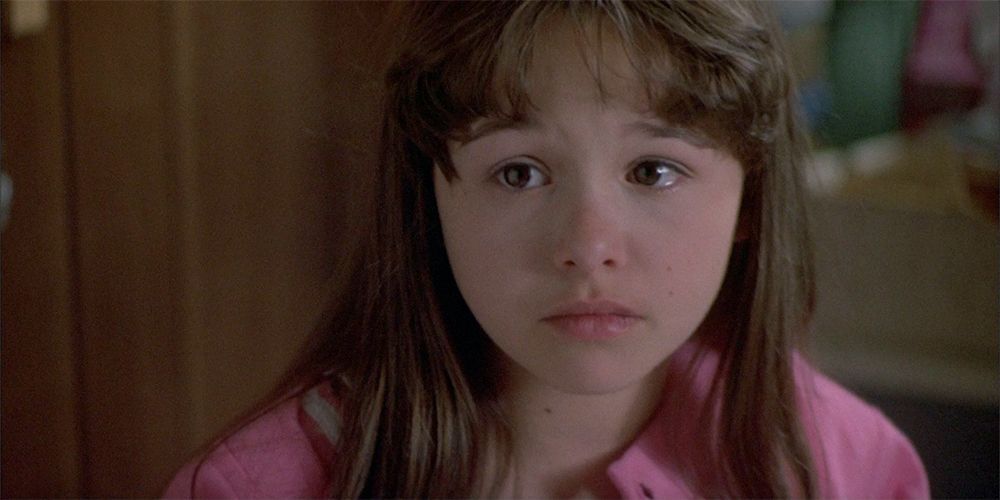
Jamie Lloyd, played by Danielle Harris, contrasted the character of Dr. Samuel Loomis. Within this fourth installment, Jamie brought sympathy and tragedy with her youthful age. As opposed to Dr. Loomis' knowledge of Michael, Jamie was nearly unaware of her murderous uncle.
However, Michael's legend reverberated throughout Haddonfield which led to Jamie's torment. The constant reminders from classmates plagued Jamie's life. Once her uncle made his vicious return, she comprehended that the legend was true and she was now his next target. An innocent seven-year-old child up against a monstrous force caused immense amounts of drama and tension within the film.
1 Franchise Bookend
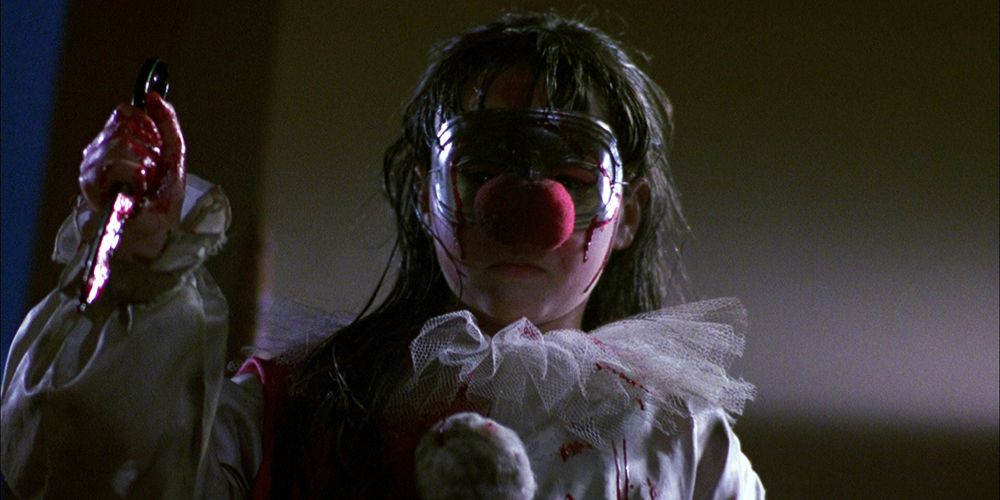
Halloween 4: The Return of Michael Myers could have been the perfect bookend to the franchise. Yes, subsequent sequels put that proposal to rest decades ago, but this notion carried an enormous amount of weight giving it plausibility. The opening to the original Halloween showcased a young Michael Myers' point of view as he murdered Judith Myers, his older sister.
In 1988, the closing to Halloween 4: The Return of Michael Myers presented Jamie Lloyd's point of view as she murdered her foster mother, Darlene Carruthers. The chilling image of Jamie Lloyd dressed similarly to her uncle was one that left a major impact. The final shots of the third sequel echoed back to the original which brought a sense of conclusion.
from ScreenRant - Feed https://ift.tt/3ecpfLl

No comments:
Post a Comment